THE NUCLEAR WEAPON BAN TREATY: A resource guide for WILPF
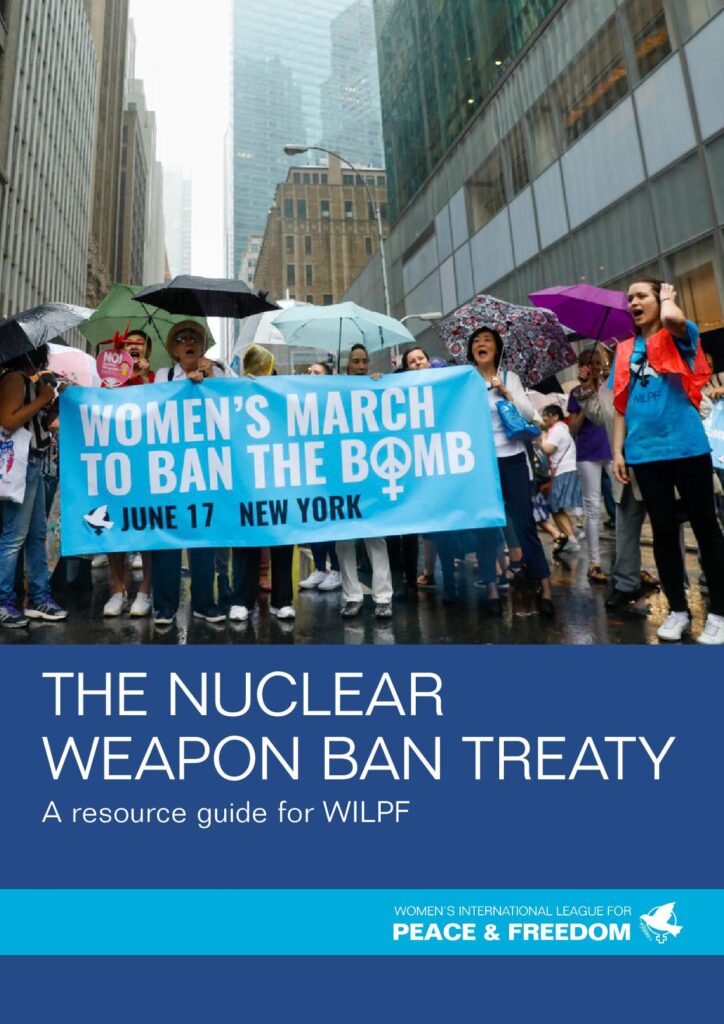
This resource guide is meant to help us carry on with that work, through working with governments and others in civil society to ensure the Treaty’s rapid entry-into-force and effective implementation. We provide an overview of what the Treaty includes, examples of past work, suggestions for future action, and where to find further information. […]
On “shrinking space”; a framing paper
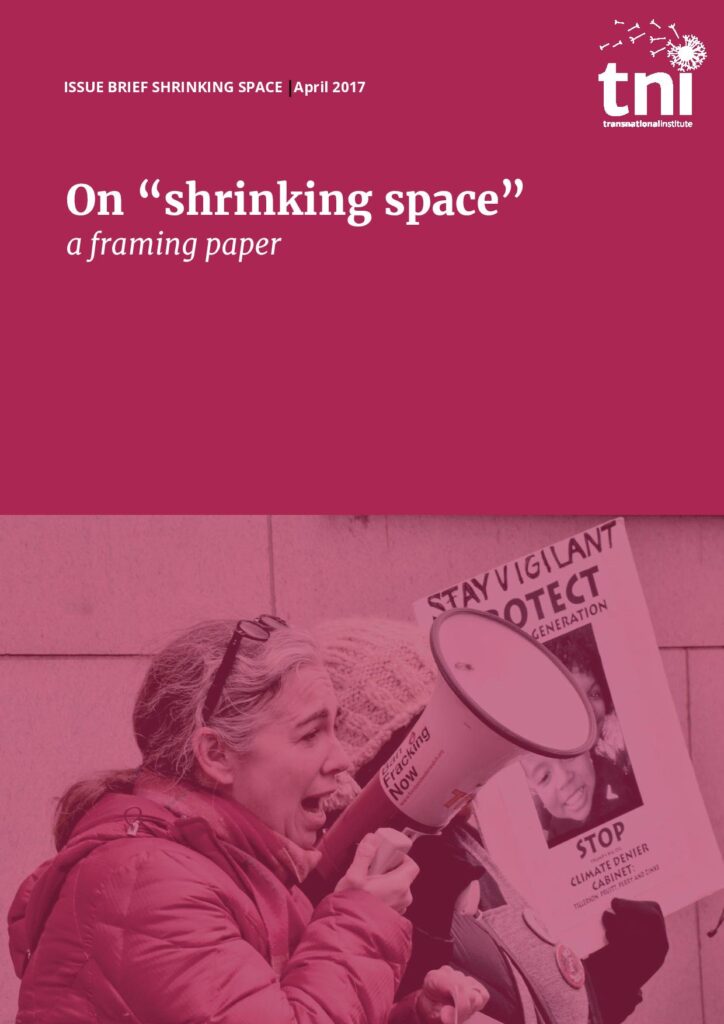
This paper attempts to deconstruct the ‘shrinking space’ narrative by explaining what it means and unpacks some of the problems inherent in the concept. It also considers who is most affected by ‘shrinking space’, and why; where the trend is headed; how it relates to the other dominant paradigms of the 21st century; and how […]
Gender Mainstreaming in Urban Planning and Development
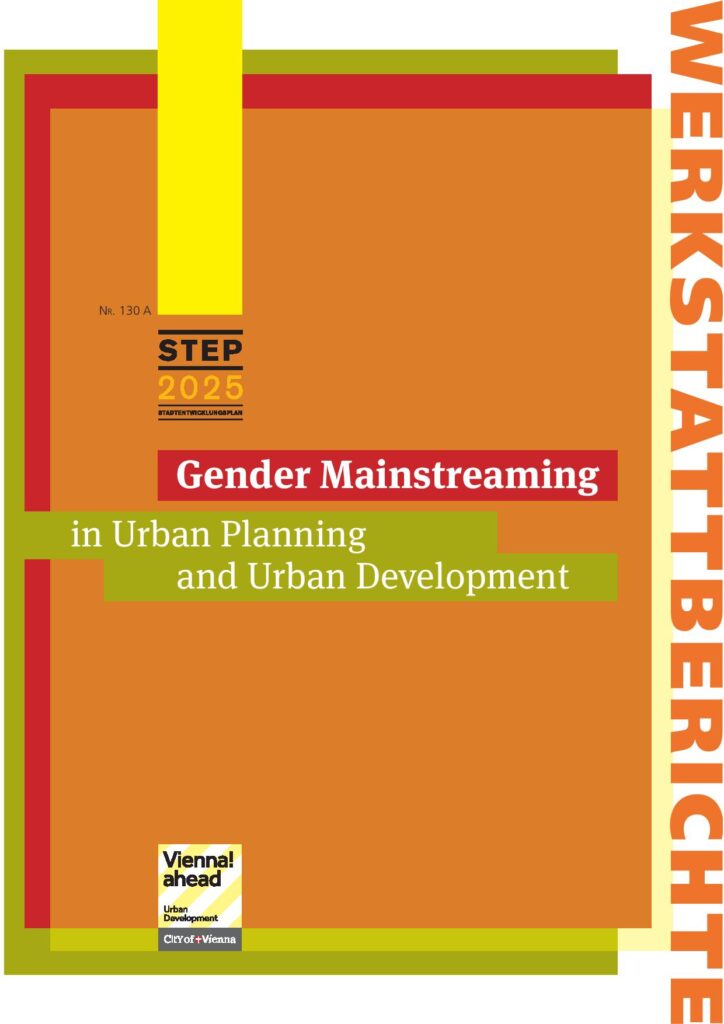
Gender-sensitive planning is a differentiated planning culture that employs a site- and group-specific approach. The added value of gender mainstreaming in planning administration becomes evident at several levels. download: [gview file=”http://afakneswiah.org/wp-content/uploads/2020/09/b008358.pdf”]
Supporting civil society under pressure – lessons from natural resource exploitation
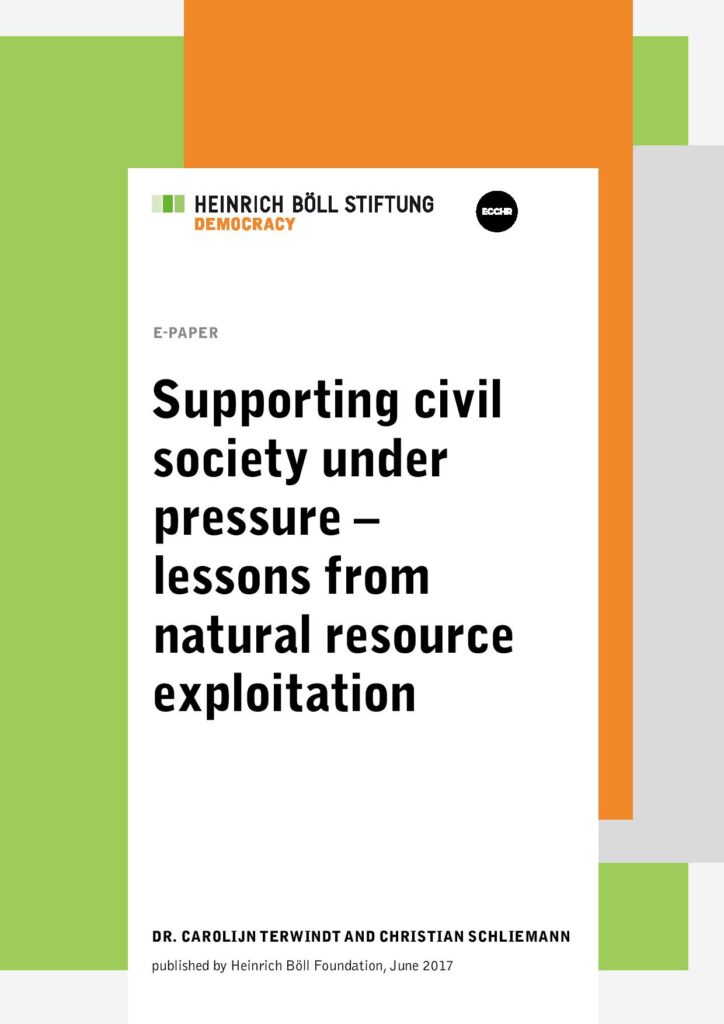
This paper is a reflection of an ongoing research project of the Heinrich Böll Foundation and the European Center for Constitutional and Human Rights, designed to uncover common patterns and dynamics of restrictions on and coping strategies adopted by civil society actors in the specific context of natural resource exploitation. It draws on case studies […]
Women`s Empowerment Principles

Source: UN Women These international standards illuminate a common aspiration for a life where the doors of opportunity are open to all. Where people can live free from violence, exercise legal redress and expect states to live up to their obligations to respect and protect the human rights of women, men and children and provide […]
MAPPING SUPPORT SERVICES FOR VICTIMS OF VIOLENCE AGAINST WOMEN IN LINE WITH THE ISTANBUL CONVENTION STANDARDS: METHODOLOGY AND TOOLS
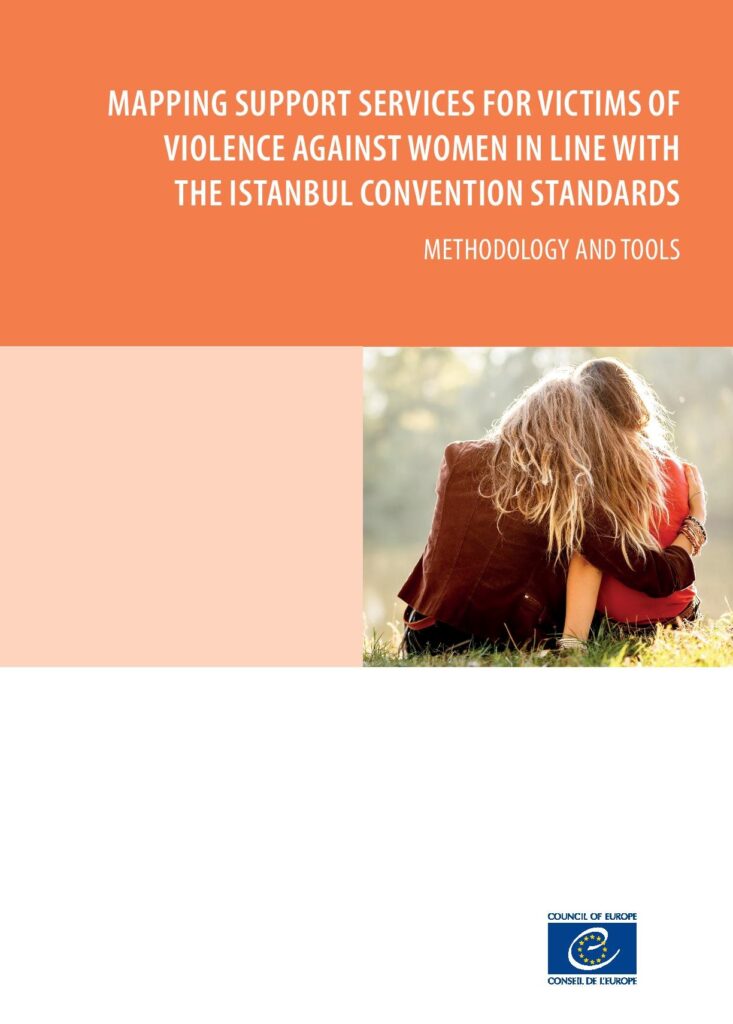
A mapping methodology and tools were developed within the framework of the Council of Europe multi-country Project “Violence against Women” which focused on increasing the knowledge of professionals and facilitating exchanges and promising practices in the implementation of international and European standards, in particular the Council of Europe Convention on preventing and combating violence against […]
The Gender impact assessment and monitoring tool
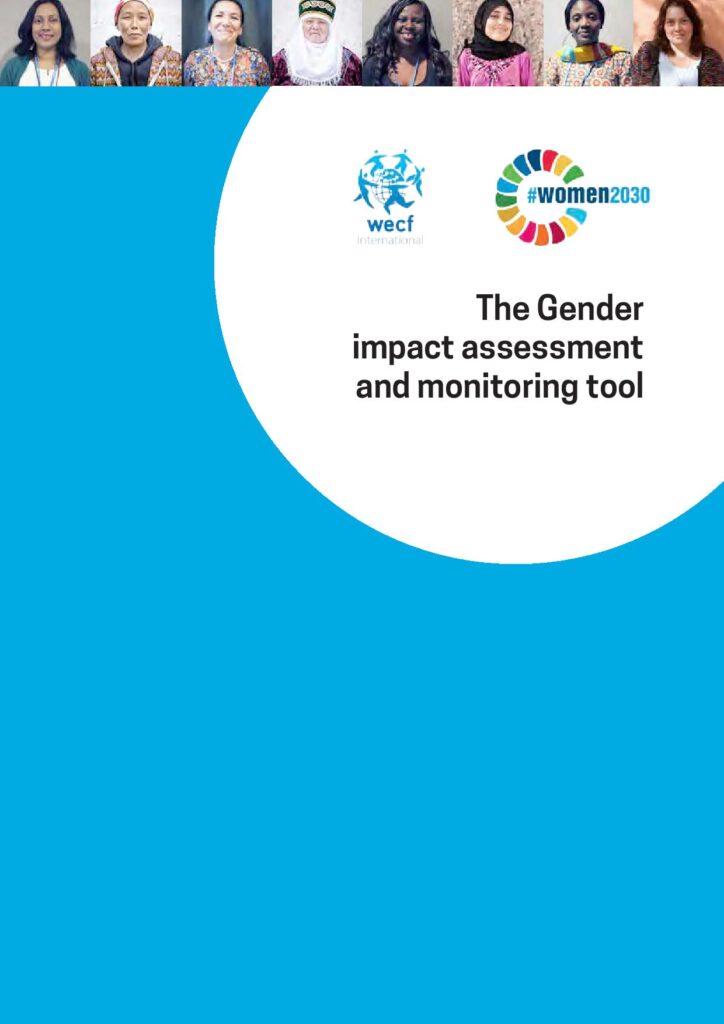
The aim of the tool (first part) is to provide Women2030 partners with a common understanding of how to assess gender issues within local, regional and national contexts, in order to create a sound basis of comparable data for the project Women2030 and laying the groundwork for gender just implementation of the SDGs. Furthermore, monitoring […]
UNICEF Humanitarian Action for Children 2019
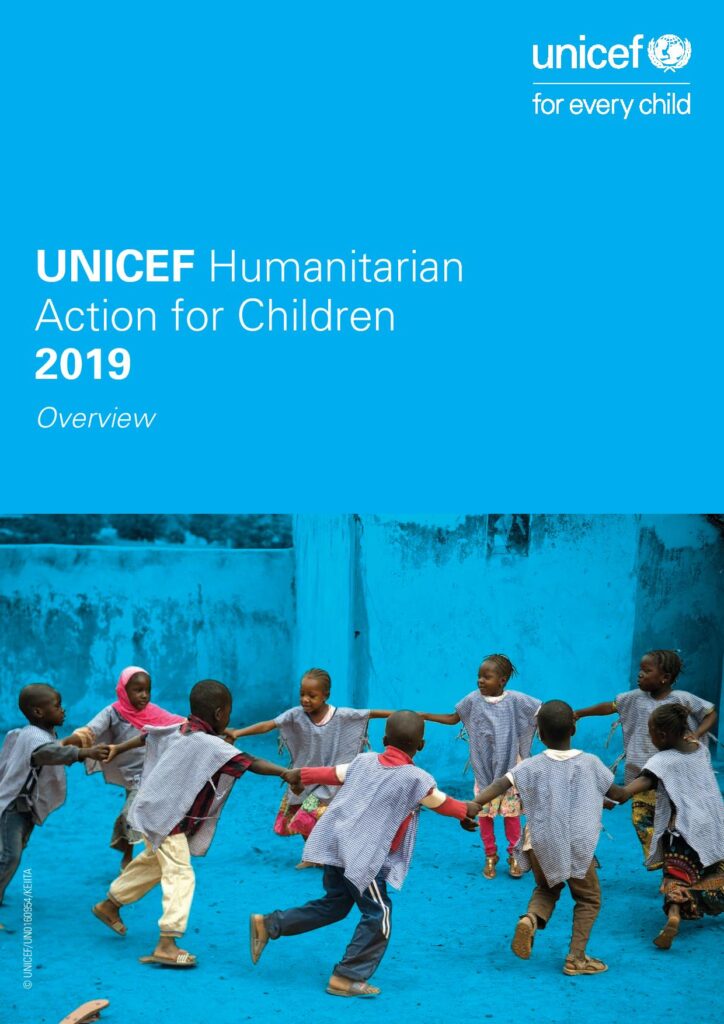
Humanitarian Action for Children 2019 underscores the urgency of protecting children in crisis from all such threats to their lives, well-being and dignity. download: [gview file=”http://afakneswiah.org/wp-content/uploads/2020/08/Humanitarian-action-for-children-2019-eng.pdf”]
A Guide to Women’s Rights and Environmental Justice Advocacy on International Financial Institutions
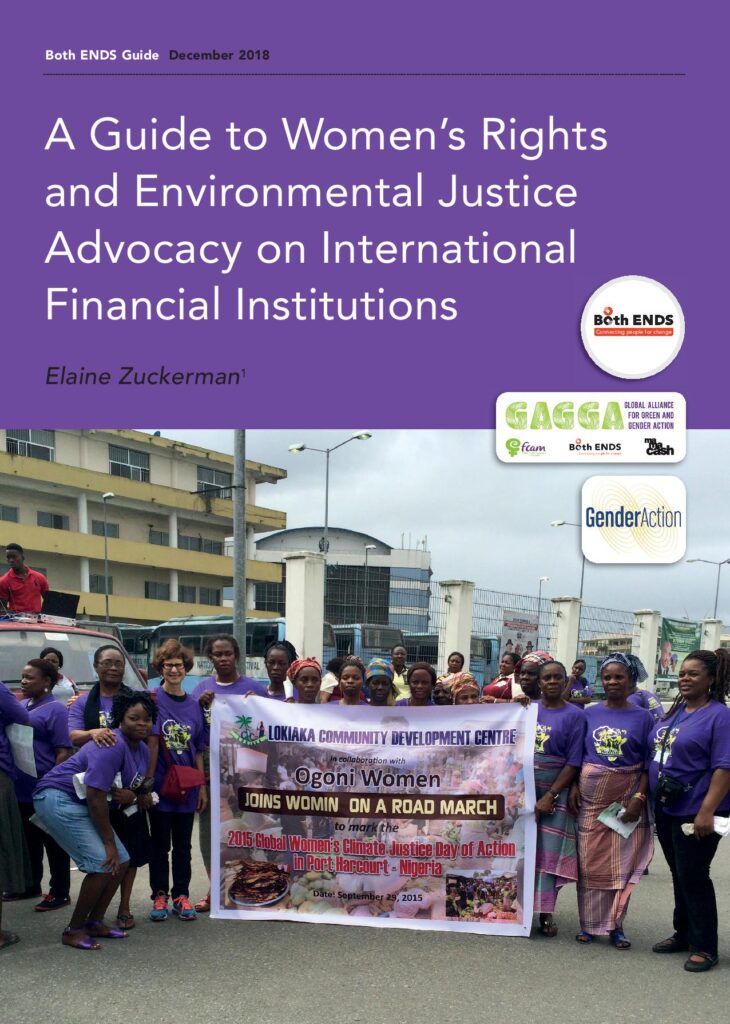
This guide serves to inform the partners of GAGGA as well as other women’s rights campaigners who are still relatively new to the work of holding IFIs accountable. The guide starts off with basic information about IFIs and a summary of the L&A directed at the IFIs since the early 1980s. Section 2 discusses the […]
Missing Figures: The Cybersecurity Gender Gap

Considering that modern society depends on cybersecurity for nearly every aspect of daily life in the digital age—to work, shop, travel, communicate, form relationships, protect our health, keep ourselves safe from terrorist attacks, natural disasters and other calamities, etc—it is surprising that women, who represent 50 percent of the global workforce, comprise only 11 percent […]
